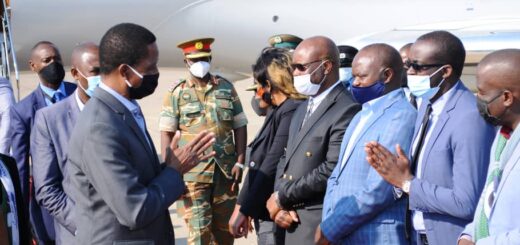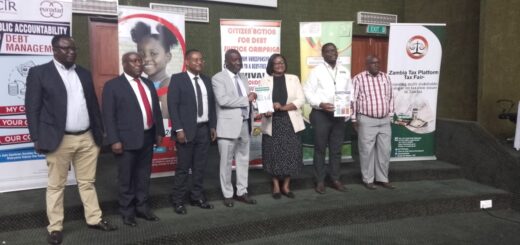FROM PRISON BARS TO THE NEWSROOM …….. Derrick Sinjela says he will neither retreat nor surrender
Notice: Undefined index: catFilterList in /home/zambi/public_html/wp-content/plugins/wp-likes/api.php on line 243
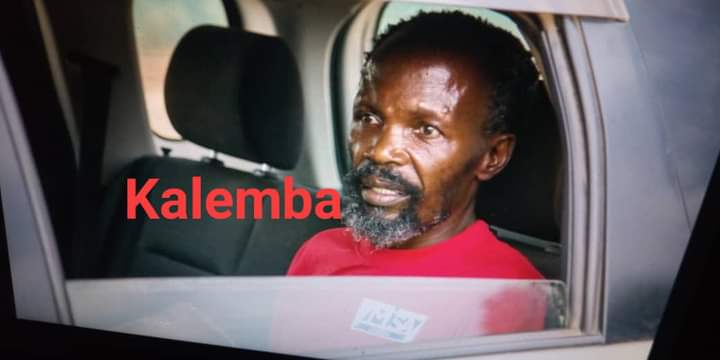
Derrick Sinjela straight from Hotel California picture by Salim Dawood
FROM PRISON BARS TO THE NEWSROOM
…….. Derrick Sinjela says he will neither retreat nor surrender
By Bennie Mundando
I WILL continue telling the masses the truth because journalism is not a crime and no other reporter in Zambia must be jailed on tramped up charges for presenting the truth, Rainbow Newspaper proprietor Derrick Sinjela has vowed.
December 20, 2018 will remain in Mr. Sinjela’s heart, never to be erased from the sands of history, as the day when an infamous judgment condemned him to an 18-month custodial sentence after dissecting the outcome of the Savenda Vs Stanbic court case in his tabloid.
From the newsroom, Mr. Sinjela took the lonely path to the stinking prison cells, served his sentence, and went back to the newsroom more reinvigorated to continue from where he had ended.
He says while he knows many former inmates who continue to grapple with a myriad of obstacles due to stigma, he has not allowed those perilous days behind bars to dictate who his free-again self in society.
Giving a detailed account to The Scoop yesterday about how his stay was in prison, Mr. Sinjela says there is no correctional facility in Zambia as the existing structures are occupational hazards where the idea of reformation for inmates is far-fetched as the facilities are not meant for reformation but designed for inmates never to come back alive.
He vividly remembers that his day started as early as 05:00 hours with a cup of plain but coloured samp devoid of sugar or salt for breakfast, save for the drink that was poured onto it and served to the prisoners on days that there was juicy for them.
“If you want to survive and come out of prison alive, the first step to take is to accept the situation and tell your mind that this will be your new home until you serve your full term or you are pardoned. Breakfast was a cup of samp for each inmate. It is served plain; no sugar or salt, except on days when some drink would be poured on it to give it taste. There were days when we ate green or red-coloured samp depending on the colour of the drink available that day, if we were lucky.
“But before breakfast, we woke up around 05:00. The gate is opened and we move from our individual cells to the perimeter for roll call. I was in cell No. 4. After roll call, you go back and prepare then come back between 06:00 and 07:00 for devotion starting with Christians and then Muslims. During this time, you don’t make any mistake.
“You do not make unnecessary noise other than prayers. If you do, there were serious punishments such as washing blankets. If you are given blankets to wash, you are even lucky because others would be given buckets with faecal matter to scrub or clean the toilets and I mean those non-flushable, dirty toilets. It is quit dehumanising. Here, there is no special treatment for anyone. Everyone has to observe high levels of discipline,” Mr. Sinjela says.
He says every activity was done according to protocol and seniority, starting with the prison bosses while prayers and church services were compulsory where everyone needed to come out and attend.
“Within this time, there was bathing. Bathing started with the senior people. Those we used to call bakuma bed. Those who had makeshift beds for sleeping on. Once they are done, that is when ise baku chintu bwingi would bath. We used to bath twice a day; in the morning and in the evening and if it is discovered that you have not bathed or you just bathed once, you would be severely punished. Part of the punishment included being moved to sleep at the pile (ku chintu bwingi).
“By 08:00 hours, you are all done with prayers, bathing, and eating. On Tuesdays, we used to have a church service at 10:00 and these services were conducted by different churches. Saturday was reserved for the SDA Church. So, Tuesdays and Thursdays were mandatory for church services and everyone must come out. In the evening again there are prayers starting with us Christians and then the Muslims. Once the siren is heard, all Muslims must kneel on their mats facing Mecca and offer prayers,” he recounts.
He explains that at lunch, inmates used to have nshima with beans or daga (the bigger and somewhat bitter version of kapenta).
“Once in a while, we would have beef. Sometimes the Zambia Revenue Authority (ZRA) would bring some food stuffs confiscated from some business houses for us to eat. Sometimes well-wishers would bring food for us but sometimes, the food stuff would be in bad state, hence the reason to donate them to us instead of throwing them away.
“It is not automatic that everyone can have supper. You can only be assured of having supper if you have your own food stuffs like relish. Then, you can have it prepared and you eat. This is why relish is very important to a prisoner. There are fridges where you can put your relish after labeling it so that when you need it, you can easily identify it,” he says.
He explains that prisoners eat in groups of three or more depending on what brings them together.
“Some eat together because they are from the same profession, for example, teachers, nurses, etc. Some eat together because they come from the same tribe; some eat together because they come from the same religious grouping for example, Muslims, Hindus, or because they come from the same country because, remember, there are people from other countries serving jail terms in Zambian prisons.
“So, you will find that people from Rwanda for example, eating together, especially where language barrier is a problem. Differences among inmates are normal but sometimes petty. Just like in any society, you find bad and good people. People come from different backgrounds and you do not expect them to behave the same,” he says.
Mr. Sinjela says he is grateful to people who helped him and his family when he was in prison. He says a lot of people scarified their time and resources to ensure that he, as well as his family back home, had food and given any other assistance they needed.
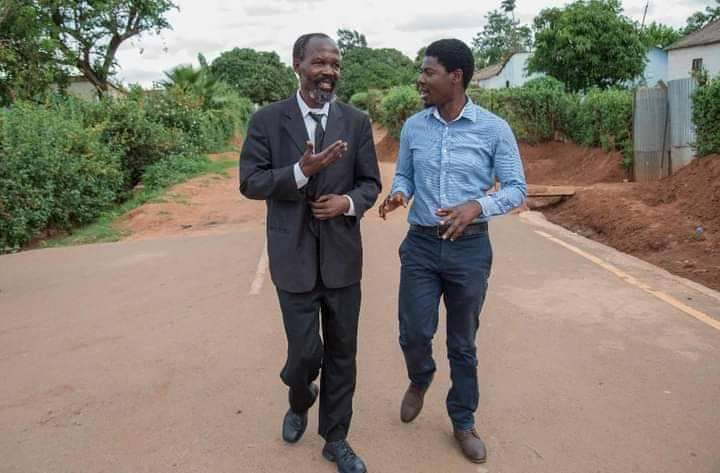
Courageous Salim Dawood petitioned President Edgar Chagwa Lungu to have Derrick Sinjela unconditionally released from Chimbokaila prison.
“A lot of people helped my family. People like Non-Governmental Organizations Coordinating Council (NGOCC) Executive Director Engwase Mwale and her counterpart, Whitney Mulobela, as well as the team from MISA Zambia. Mr Dante Saunders helped me a lot through people like Fulman Mukobeko. They would bring me things like Kapenta, dry, fish, chicken, sausages, etc.
“The team from PANOS also did a lot, not forgetting Bishop John Mambo, Judith Mulenga, Laura Miti, McDonald Chipenzi, Cynthia Nkhata, and Kalaluka Mushaukwa. Kasebamashila Kaseba, Bridget Bwalya, Fresher Siwale, Sam Zulu, and many others, too numerous to mention, also helped a lot and to all of them, I am grateful. Do you remember that former Mines Minister Maxwell Mwale was also incarnated at the time? He was giving me chicken every Sunday. To him, I am also grateful,” he says.
Asked how he felt when he realised that he had been pardoned by then President Edgar Lungu, Mr. Sinjela said he was happy that finally he was going to be a free man but that he was also sad that he was leaving behind, people who had become part of his life and good enough to be family.
“It was on November 11, 2019 on his birthday that President Lungu pardoned five inmates. I was also on that list together with Mr. Mwale but initially, I had no idea about what was happening. I was with a friend, James Banda, then a remandee. He was a cleaner to the cell captain. We were just seated on the bed. I just saw Justin Phiri, the co-accused to former Ministry of Health Chief Human Resource Officer Henry Kapoko and his colleague from what we used to call the Penal Block, and Saliona Thomas Mtonga running to me and shouting that I had been released.
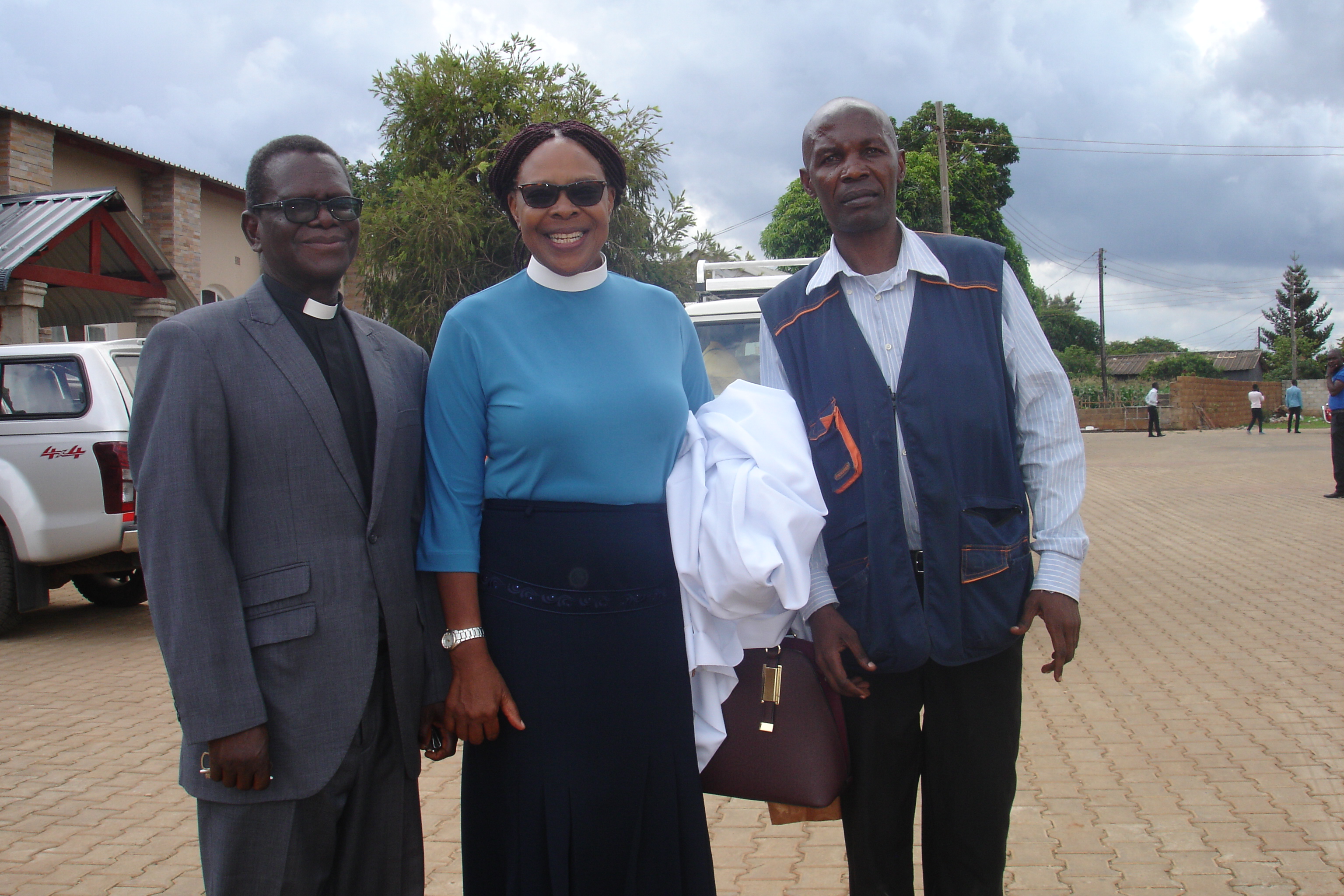
Former CCZ Gen Sec Rev Dr Suzanne M’membe-Matale with UCZ Minister Rev Siishebo Silishebo and Derrick Sinjela – Picture Arnold Nyirenda
“They were happy. They were happy that I was free. I was also happy that I was going home at last but again, my heart sunk when I realised I was leaving behind people who had become family to me. When other inmates heard that I had been pardoned, they gathered around and asked me not to forget to be subscribing to GOtv for them to be watching TV.
“I was subscribing to GoTV every month and I have continued doing so. I still spent a night in the cell because paper work for my release was not yet completed and only came out the following day around 17:00. I felt honoured that reporters had camped at the prison the whole day waiting for me to be released but once outside, I was whisked away in a vehicle and only Salim Dawood managed to get a picture of me inside the vehicle as we sped off before the window was rolled up,” he remembers.
Asked what had become of the Rainbow Newspaper in his absence, Mr. Sinjela says the paper was only printed once from the time he was thrown in jail.
“The paper was only printed once during the time I was inside. There was an organisation from Kenya which had given some money to print the paper just once and then they stopped. I was away and so, the business suffered. Even currently, things are not okay. I am trying to revive the paper but I have to start from the scratch.
“When I came back, I started by printing the paper on A4 and not A3 due to expenses. The cost of production is too high and this is why we have remained weekly. If there is any person who can help us in terms of printing machine, computers or transport, we would be grateful. I applied for help from MISA and I am still waiting for feedback,” he said.
Asked if jail life had broken him, he says going to prison was a blessing in disguise because it had reinvigorated his resolve to push for a free press and champion media freedom where journalists are allowed to practice without interference or intimidation from anyone.
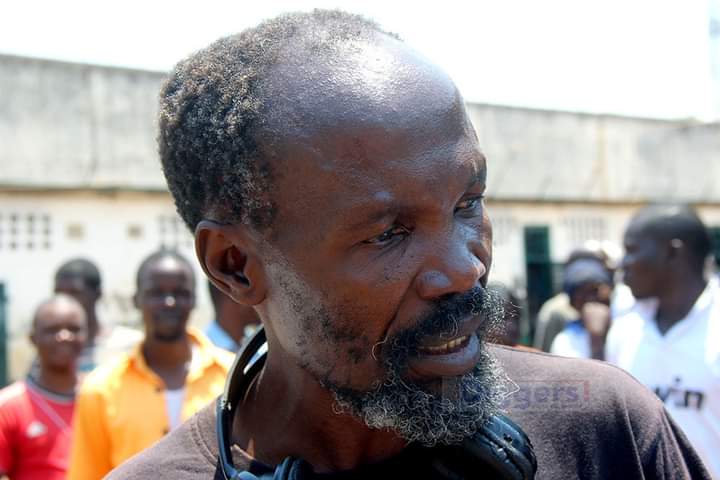
Derrick Sinjela in Chimbokaila Prison now called Lusaka Central Correctional Facility (LCCF)
He believes there is no profession that cannot be criticised and that this includes the Judiciary but says his wish is that he will be the last reporter in Zambia to be jailed for simply doing his job and speaking the truth.
-
“It is no retreat, no surrender. We have to soldier on. The future is bright. I should be the last one going there. No other reporter must go to prison for merely bringing out the truth like pI did and no one must be intimidated for asking questions for which the public deserves an answer. The struggle continues,” he said.
Asked if there was any wish he wanted fulfilled as soon as possible, Mr. Sinjela says Mr. Henry Mulenga Kapoko must be pardoned also because he has suffered. He says there is no need to keep him in prison for such a long time when most of his co-accused have either been acquitted or pardoned like him.



